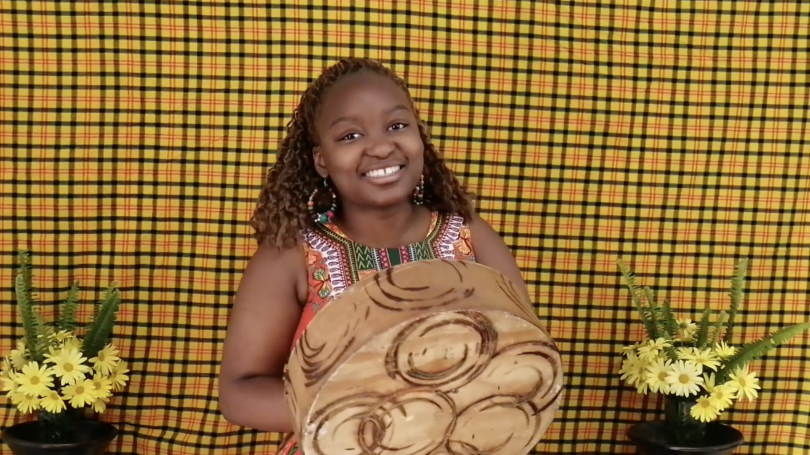
- Undergraduate
- Graduate
- Performance
- Foreign Study
- News & Events
- People
Back to Top Nav
Back to Top Nav
Back to Top Nav
Back to Top Nav
Back to Top Nav
Back to Top Nav
AL for the Arts, a South Africa-based creative development network founded by the African Leadership Academy, recently launched an online exhibit hosted by Google Arts & Culture titled Redefining Womanhood. The multimedia collection curates 270 pieces by young African women artists, each confronting the meanings and possibilities of womanhood in their own way and through their chosen medium: painting, film, photography, sculpture—or, for ALA alum and Dartmouth first-year Tanaka Chikati '25, traditional Shona music. Chikati, a Zimbabwean singer and player of the Shona mbira and marimba, is one of thirty women artists featured in the exhibition curated by Motswana documentary photographer Towela Tembo.
Chikati contributes two video performances to the collection, showcasing her fluency in Shona musical traditions, her remarkable versatility as a vocalist and multi-instrumentalist, and her downright infectious energy on stage: "A Journey Through the Mbira" and "Tsvimborume." In "A Journey Through the Mbira," Chikati accompanies herself on mbira nyunga nyunga for a medley of three pieces, beginning with the harvest song "Nhemamusasa" and the ancestral invocation "Vana vanogwara" and concluding with a song by Thomas Mapfumo, the Zimbabwean singer-songwriter renowned for his fearless anti-colonial and liberatory anthems. "Tsvimborume" offers a glimpse of Chikati's dazzling technique on the Shona baritone marimba, whose long resonators beneath the keys produce the instrument's distinct and colorful buzzing timbre; it comes as no surprise that Chikati was the captain of her local marimba band before coming to Hanover. As Chikati explains in the video notes, the song is a traditional call to battle and one which figured prominently in the Zimbabwean liberation struggle of the 1960s and '70s.
In these performances, Chikati contributes her extraordinary artistic voice to the Redefining Womanhood exhibition, offering a perspective that is rooted in the traditional and the local, but with close attention to the struggles of the recent past and an eye firmly oriented to the future.